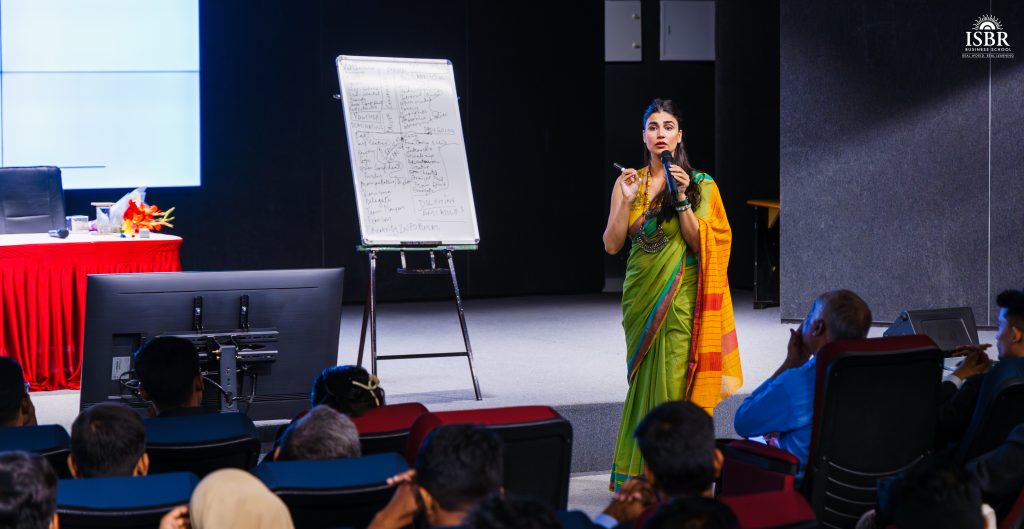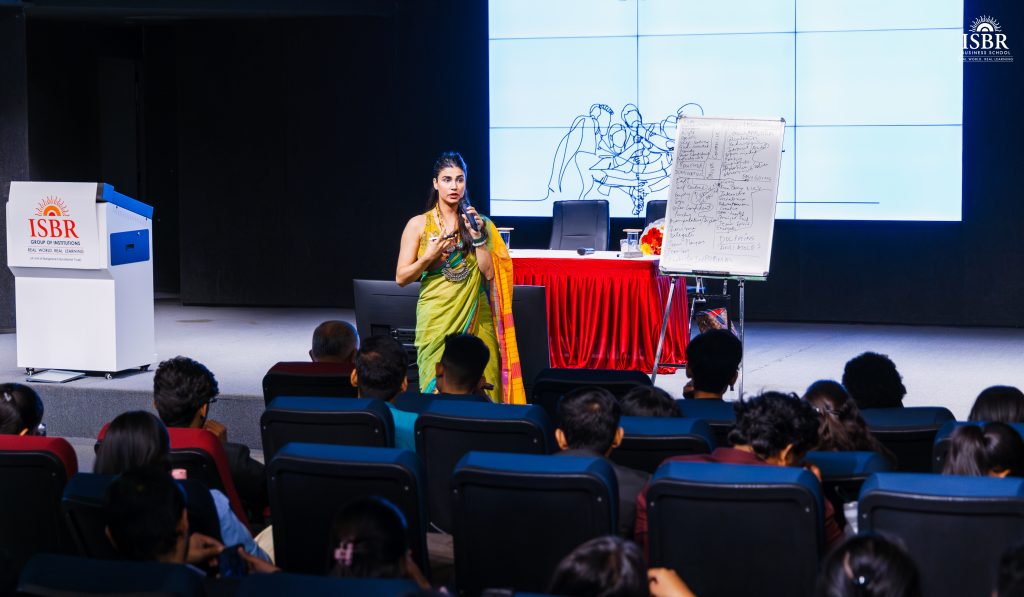ISBR hosted a transformative event focused on understanding the complexities of human behavior and social styles. Organized by Deepti Seth from the People & Culture Team at Grant Thornton Bharat LLP, the event brought together students, professionals, and thought leaders to delve into the intricacies of interpersonal dynamics and their implications in the workplace and beyond.
The Importance of Social Styles
Social styles are the distinctive ways individuals communicate, interact, and relate to one another. Understanding these styles is crucial, as they influence how we perceive others, how we are perceived, and how we build relationships. The event highlighted the significance of recognizing these differences, which can lead to improved collaboration, reduced conflicts, and enhanced team performance.
Deepti Seth, a seasoned expert in people management, led the discussions, emphasizing the four primary social styles: Analytical, Driver, Amiable, and Expressive. Each style has unique traits that impact how individuals interact and contribute within a team.
- Analytical: Detail-oriented and systematic, these individuals thrive on data and structure. They appreciate clarity and often excel in roles that require critical thinking.
- Driver: Results-focused and decisive, Drivers are known for their ability to lead and take charge. They prioritize efficiency and can sometimes come off as blunt or direct in their communication.
- Amiable: Empathetic and supportive, Amiables value relationships and harmony. They are great listeners and tend to prioritize team cohesion over competition.
- Expressive: Creative and enthusiastic, Expressives are natural storytellers who thrive in dynamic environments. They bring energy and innovation to their teams but may struggle with details.


Key Takeaways
The interactive sessions facilitated by Deepti encouraged participants to reflect on their social styles and how these influence their work interactions. Here are some key takeaways:
- Self-Awareness: Understanding your own social style is the first step toward better interpersonal relationships. It allows individuals to adapt their communication to connect more effectively with others.
- Flexibility in Communication: Different social styles require tailored communication approaches. Learning to adapt one’s style can lead to more productive conversations and collaborations.
- Conflict Resolution: Recognizing the diversity in social styles can help mitigate misunderstandings and conflicts in the workplace. By appreciating differing perspectives, teams can work more harmoniously.
- Team Dynamics: A diverse team, composed of various social styles, can leverage each member’s strengths to achieve common goals. Embracing this diversity fosters innovation and creativity.
About ISBR Business School: ISBR Business School, located in Bangalore, India, is a premier institution dedicated to providing world-class education in business and management. Accredited by the NBA and recognized by the Association of Indian Universities and the Ministry of HRD, Government of India, ISBR has consistently been ranked as a platinum institute by AICTE-CII. With a diverse student body, a strong emphasis on industry collaboration, and a curriculum designed to foster innovation and leadership, ISBR Business School is committed to shaping the business leaders of tomorrow. The school’s robust placement record and partnerships with top global companies underscore its commitment to excellence and career readiness for its students

